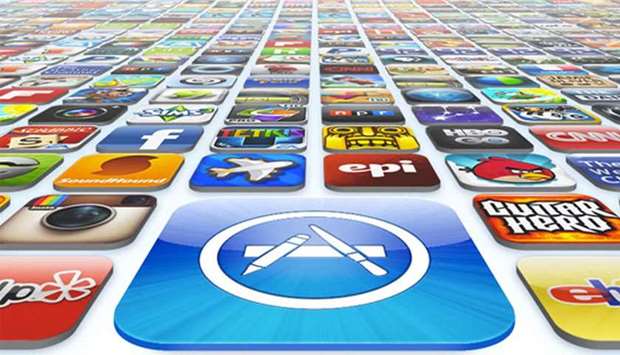The US Supreme Court agreed with iPhone users on Monday in a claim they brought against Apple involving sales at its App Store.
The 5-4 ruling allows iPhone users to move forward with their suit, which seeks damages for requiring users buy apps exclusively from the App Store. The suit claims that is an unfair use of monopoly power and a violation of federal antitrust laws.
The App Store, started in 2008, contains about 2 million apps, and is the only place where iPhone owners can buy apps. Apple pockets a 30-per-cent commission on every sale.
The lawsuit says the commission is ‘pure profit’ for Apple. The plaintiffs allege that in a competitive market, they would be able to choose between apps for sale at the App Store and cheaper alternatives.
Apple argued the case should be dismissed because it only sells apps at prices set by developers and because the purchases by iPhone users are indirect.
It based its arguments on a 1977 Supreme Court antitrust ruling that said consumers may sue only the party who sets the retail price. The tech giant said therefore only app developers should be able to bring such a lawsuit.
Justice Brett Kavanaugh, who wrote in the majority opinion, disagreed. He said the plaintiffs purchased apps directly from Apple and therefore can sue.
Kavanaugh said in the opinion that under Apple's argument a consumer could sue a monopolistic retailer when the retailer set the price by marking it up but not when the retailer took a commission on a price set by the manufacturer or supplier of a product.

